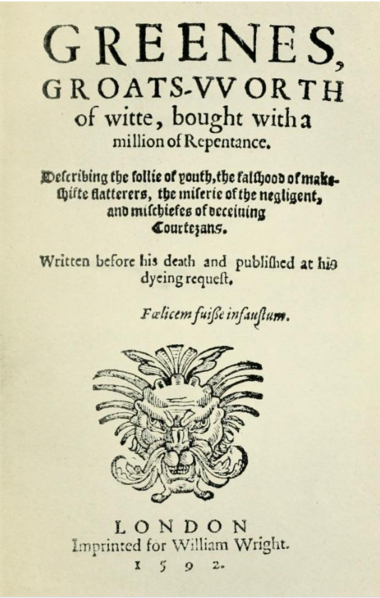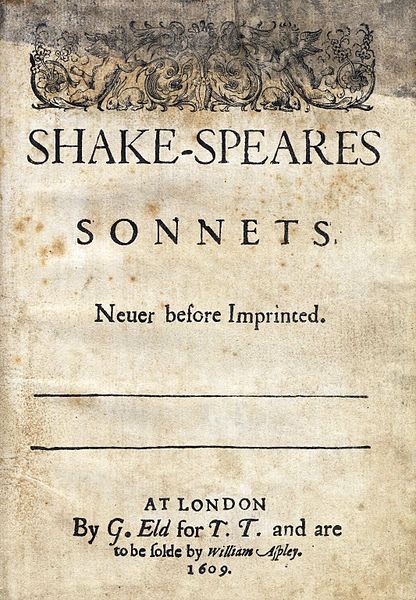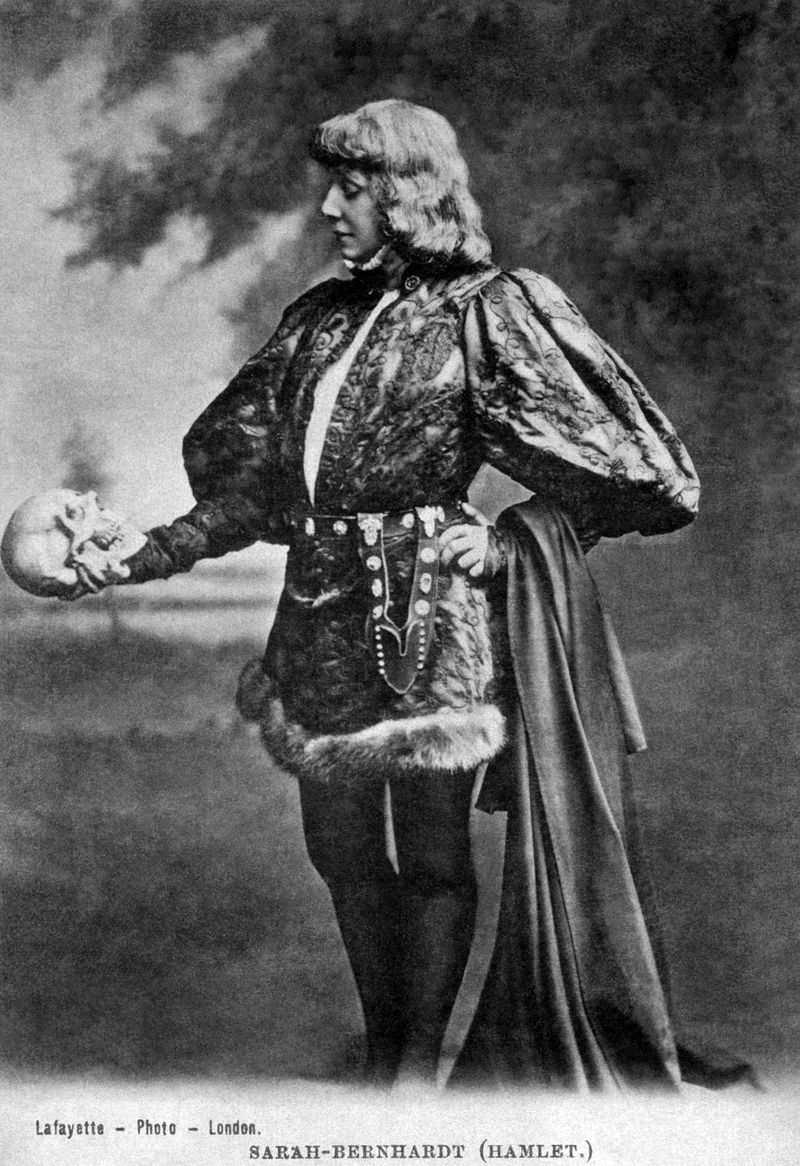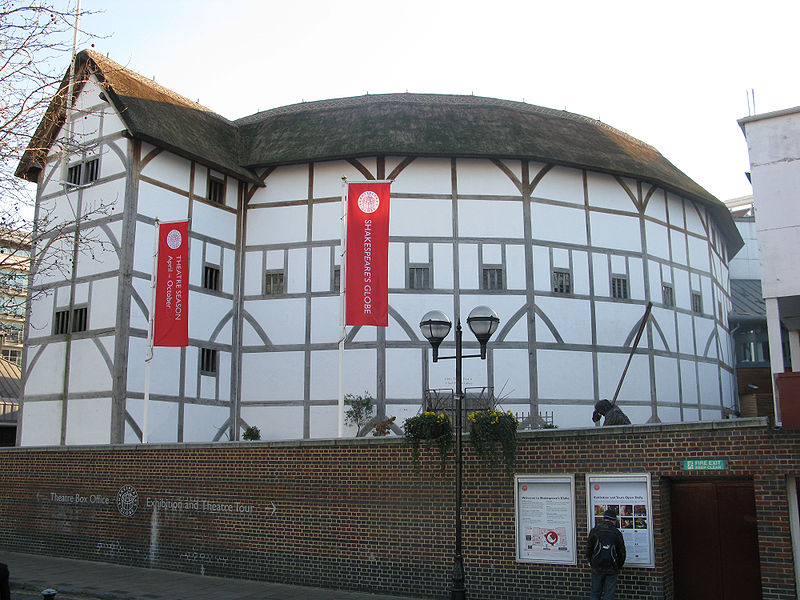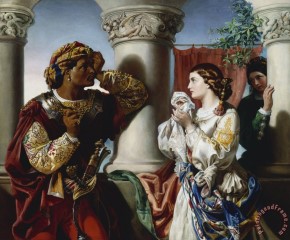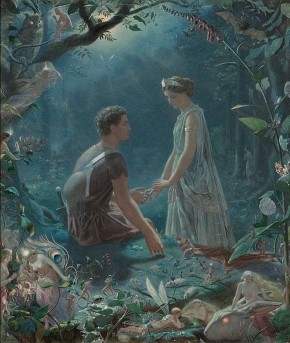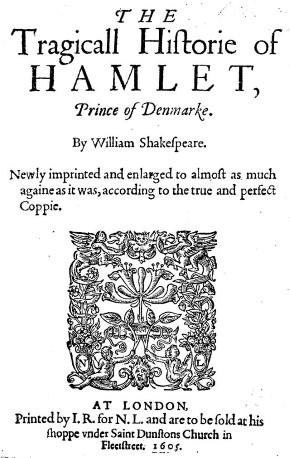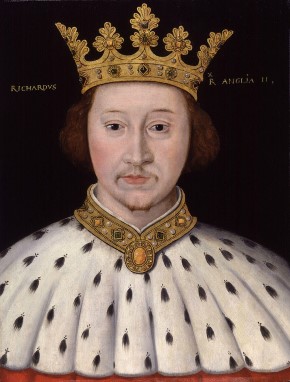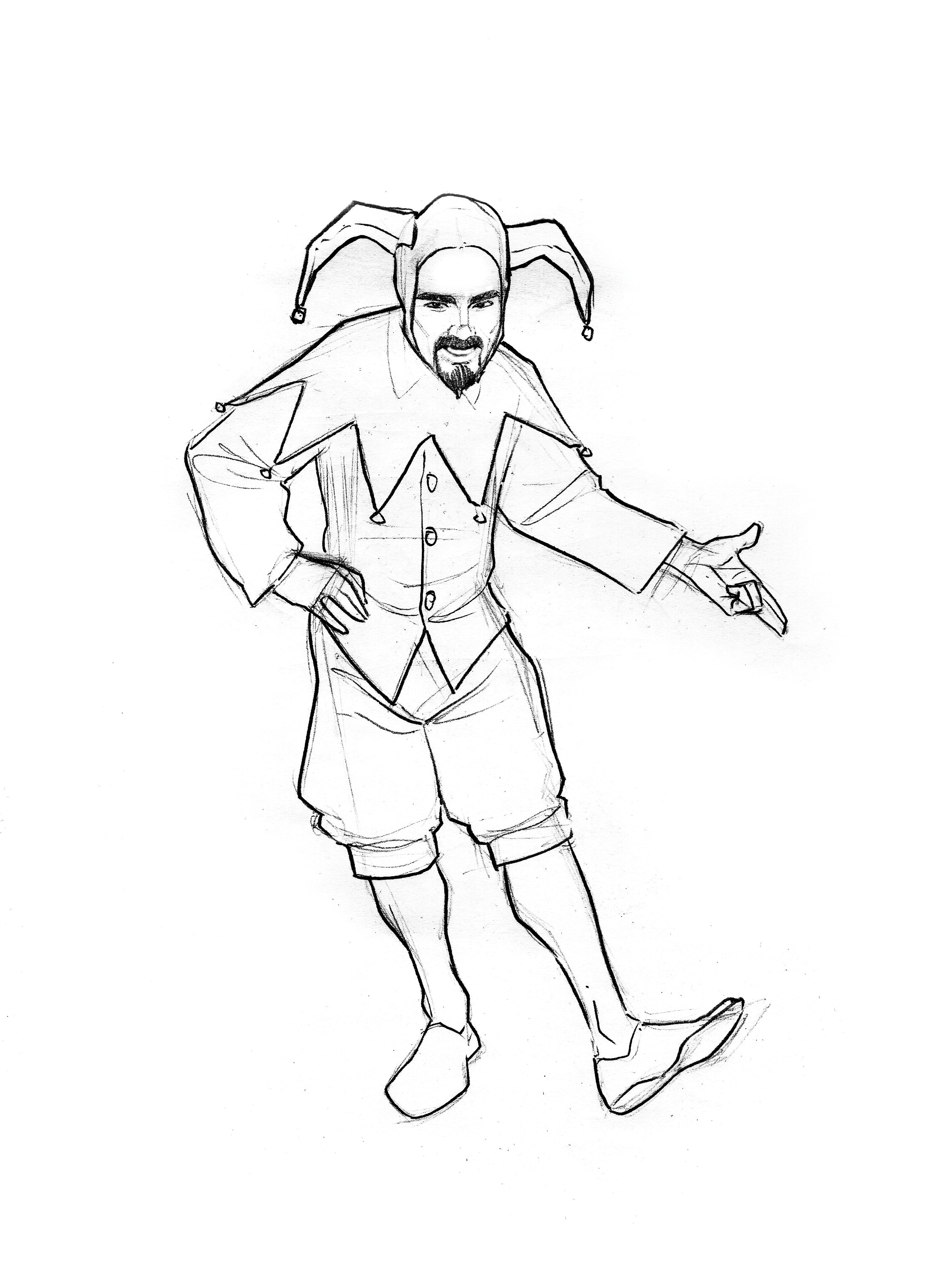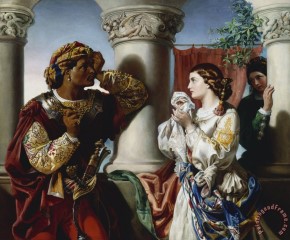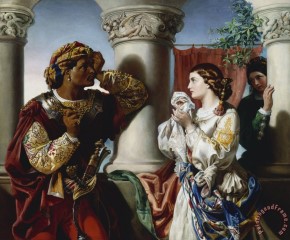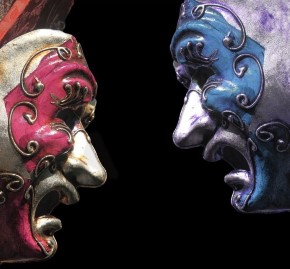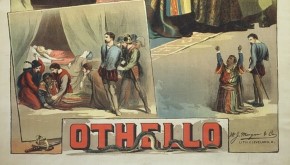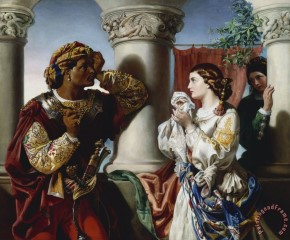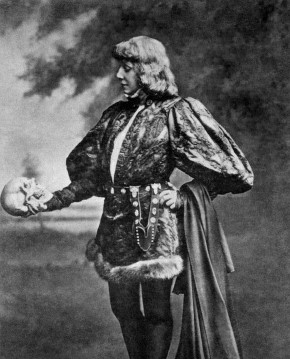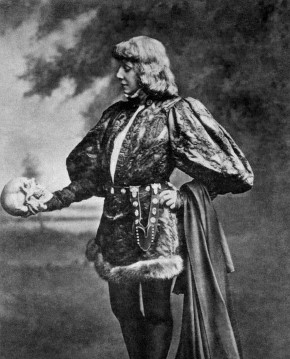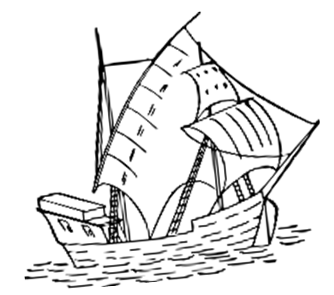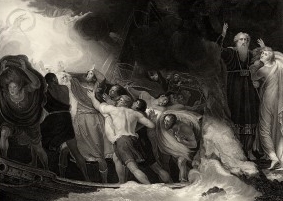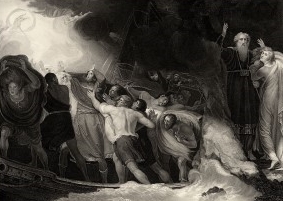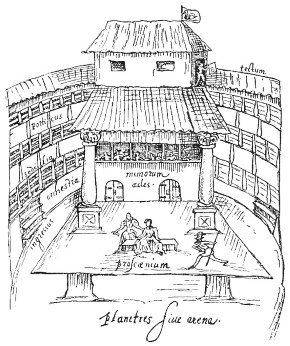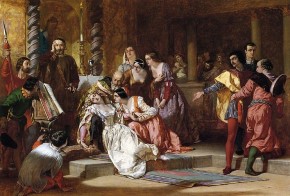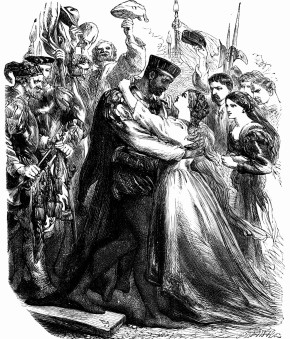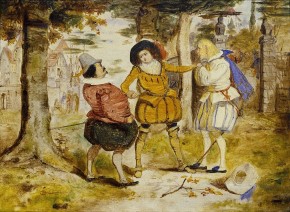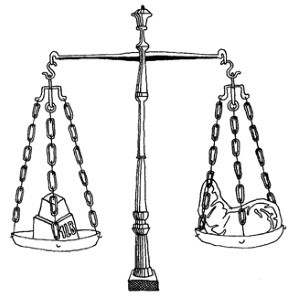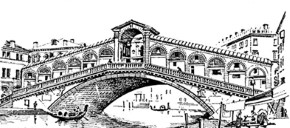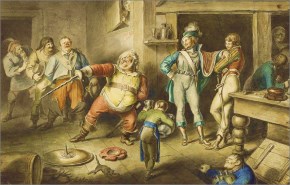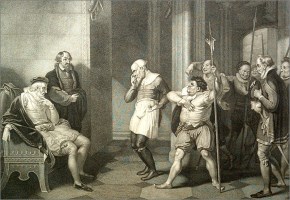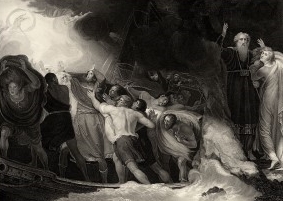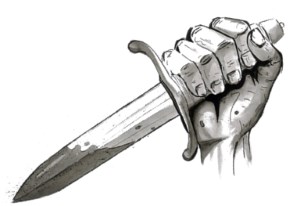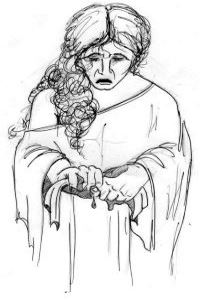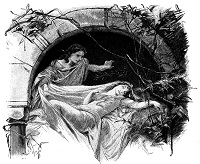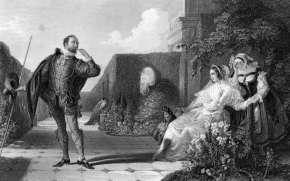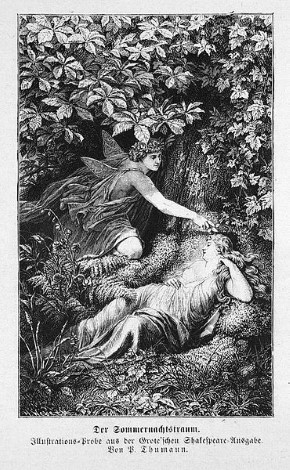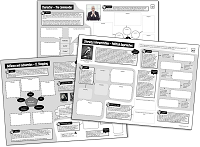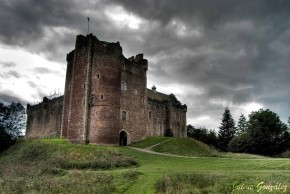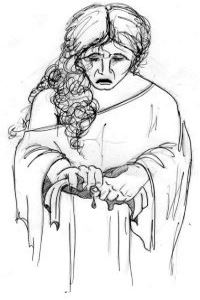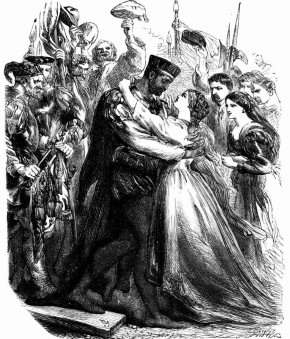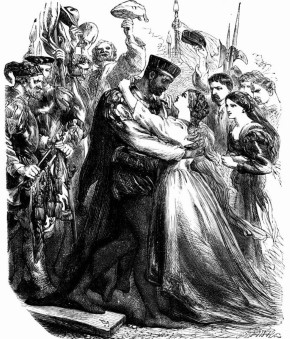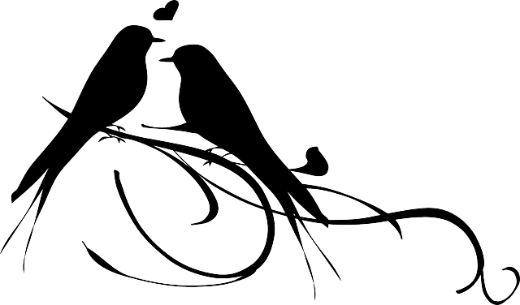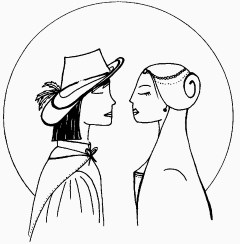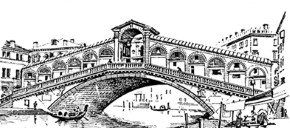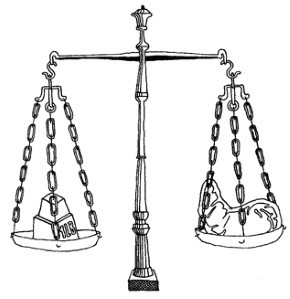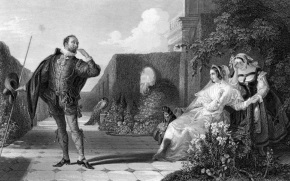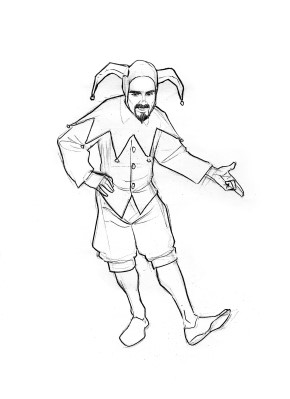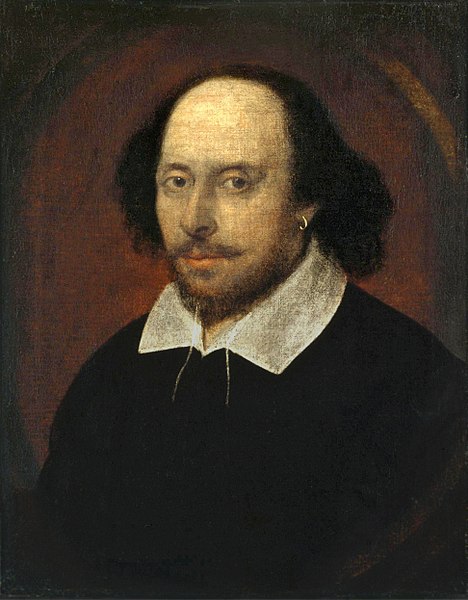
Shakespeare, William
Now known affectionately as ‘the Bard’ and hailed as the greatest writer in the English language, William Shakespeare was born in 1564 in Stratford-upon-Avon, the third child of John Shakespeare, a glove-maker and wool dealer, and Mary Arden, daughter of a local landowner. The couple had eight children in total, but William’s two elder sisters died in infancy, leaving him as the eldest child and leading him to inherit the family home upon his father’s death in 1601. (Shakespeare’s birthplace can now be visited by the public, as can Mary Arden’s house.) William was in fact baptised on 26th April, but his birth is now celebrated on 23rd April, St George’s Day, as is perhaps fitting for an author who is venerated by many as a literary patron saint. This date also creates a neat parallel with his death on 23rd April 1616.Although we have no precise record of his childhood years, it is likely that he attended King’s New School, a grammar school where he would have received an education based on classical (Latin and Greek) authors. At the age of 18, he married Anne Hathaway, who was around eight years his senior and who was already three-months pregnant with their first child, evidenced by the birth of Susanna in 1593, six months after their marriage. Twins Hamnet and Judith, named after family friends the Sadlers, followed two years later, but Hamnet died of unknown causes aged only 11.
There are no surviving records of Shakespeare’s life over the next six or seven years, but by 1592 he seems to have already been established as a playwright in London, though it is not known what took him there in the first place. His success, and the jealousy it inspired in some of his university-educated rivals, is attested to in a pamphlet by dramatist Robert Greene called Greenes, Groats-Worth of Wit:
… there is an upstart Crow … that … supposes he is as well able to bombast out a blank verse as the best of you: and … is in his own conceit the only Shakes-scene in a country
This quote has more recently inspired Ben Elton’s satirical television series Upstart Crow, based on Shakespeare’s life and works and sending up the often convoluted plots, over-elaborate metaphors and blatant (though supposedly secret) asides.
Shakespeare’s lack of university education has led some to doubt the authorship of his plays, with some attributing them instead to Christopher Marlowe, Francis Bacon or the Earl of Oxford. However, the playwright’s knowledge of the classics and of court life is sketchy, as is compatible with a middle-class upbringing. Others point out that the plays may have been written collaboratively – for instance, there is evidence that Macbeth may have been revised by Thomas Middleton, Henry IV Part I may have been written with Christopher Marlowe and Thomas Nashe, and Henry VIII may have been a joint work with John Fletcher – but Shakespeare’s contemporaries named him as the author, and the plays remain the some of the most influential and enduring works in the English language.
Besides his 38 or so dramatic works, Shakespeare wrote 154 sonnets over a number of years, published as a collection in 1609, and various other poems. The sonnets have also given rise to much speculation, as some are addressed to a ‘dark lady’ while others praise a ‘fair youth’, leading people to question Shakespeare’s sexuality. Further controversy has been caused by his famously leaving his wife his ‘second-best bed’ and by the fact that he spent so much time in London, away from his family.
Perhaps what such debates prove most of all is that success breeds jealousy and conjecture, even beyond the grave. As Shakespeare himself predicted in Sonnet 18, his works have long outlived him. Following his sudden death at the age of 52, his body was buried in Holy Trinity Church, Stratford-upon-Avon, but his works live on, translated into over 100 languages and performed many thousands of times in countries as far from his native Midlands as Egypt and Korea. They have inspired musicals, films, cartoon versions and satires, all of which are a tribute to his works’ lasting power.
© ZigZag Education 2026: content may be used by students for educational use if this page is referenced.
Show / hide details
| 1564 |
William Shakespeare was born in Stratford-upon-Avon |
|
| 1566–1580 |
Five siblings were born
|
|
| 1582 |
Aged 18, Shakespeare married Anne Hathaway
|
|
| 1583 |
Susanna was born
|
|
| 1585 |
The twins Hamnet (a boy) and Judith (a girl) were born
|
|
| 1585–1592 |
The ‘Lost Years’
|
|
| c.1591 |
Henry IV Part I was written
|
|
| 1592 |
Rival dramatist Robert Greene wrote a pamphlet attacking Shakespeare |
|
| 1594 |
Shakespeare’s plays were now performed exclusively by the Lord Chamberlain’s Men
|
|
| 1596 |
Hamnet died, aged 11
|
|
| 1597 |
Shakespeare bought New Place, the second-largest house in Stratford-upon-Avon
|
|
| 1599 |
The Globe theatre was built
|
|
| 1601 |
John Shakespeare died
|
|
| 1603 |
Accession of James I
|
|
| 1609 |
The Sonnets were published |
|
| 1610–1611 |
The Tempest was written
|
|
| 25th March 1616 |
Shakespeare signed his will
|
|
| 1623 |
The First Folio was published
|
|
| 1893 |
Hamlet was first performed in Egypt |
|
| 1957 |
West Side Story premiered on Broadway
|
|
| 1992–1994 |
The BBC broadcast The Animated Tales
|
|
| 1997 |
The rebuilt Globe theatre was opened |
|
| 2015 |
The Hogarth Press launched the Hogarth Shakespeare series
|


